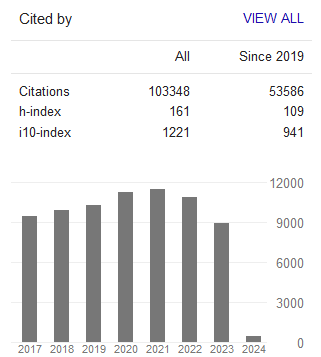The Impact of Spatial Externalities on the Economic Convergence in the Euro Mediterranean Countries
- AMINA NACEUR
Abstract
Recent models of economic growth have underlined the importance of external effects on the accumulation of factors of production (ROMER 1986, 1990; LUCAS 1988). The technology knowledge rises with stock of factors of production (human capital, physical capital, R&D, etc.) to witch all the producers contribute with identical manner. The idea is that the knowledge is considered as a free good and spread in entire economy. However, this new approach brings more explanation of economic growth; but it doesn’t integrate the spatial dimension of these externalities.
To make better this new theory, we add for fundamental hypotheses of this approach, the hypothesis that these external effects have a geographic dimension affecting the economic convergence.
Adopting this new hypothesis, we derive an equation of convergence with external effects issue from the Mankiw, Romer & Weil (1992) model, and we propose to estimate it with the recent methods of spatial econometrics to test the presence of these externalities and to estimate their effects on the economic convergence.
For the empirical validation, relying on a panel of 26 euro Mediterranean countries over the period 1995-2004, and using the matrix of distance and the matrix of contiguity to measure the interactions between these countries, we estimate the equation of convergence with spatial externalities derived from the model of Mankiw, Romer & Weil (1992).
The results of estimation based on the integration of spatial dimension of externalities permit to appreciate better than the a-spatial growth theory, the effects of these externalities on the economic convergence in the case of economic integration in space. They allow to quantify a double effect of geographic spillovers and to valid the hypothesis that taking account of spatial externalities doesn’t necessarily reduce the divergence between the North and the South Mediterranean countries. The reason of the persistence of this divergence is related to the absence of efficient interactions and coordination between these countries.
Key words: External effects, economic convergence, spatial econometrics, economic integration.
- Full Text:
 PDF
PDF
- DOI:10.5539/ijbm.v4n8p73
Journal Metrics
Google-based Impact Factor (2023): 0.86
h-index(2023): 152
i10-index(2023): 1168

Index
- Academic Journals Database
- AIDEA list (Italian Academy of Business Administration)
- ANVUR (Italian National Agency for the Evaluation of Universities and Research Institutes)
- Berkeley Library
- CNKI Scholar
- COPAC
- EBSCOhost
- Electronic Journals Library
- Elektronische Zeitschriftenbibliothek (EZB)
- EuroPub Database
- Excellence in Research for Australia (ERA)
- Genamics JournalSeek
- GETIT@YALE (Yale University Library)
- IBZ Online
- JournalTOCs
- Library and Archives Canada
- LOCKSS
- MIAR
- National Library of Australia
- Norwegian Centre for Research Data (NSD)
- PKP Open Archives Harvester
- Publons
- Qualis/CAPES
- RePEc
- ROAD
- Scilit
- SHERPA/RoMEO
- Standard Periodical Directory
- Universe Digital Library
- UoS Library
- WorldCat
- ZBW-German National Library of Economics
Contact
- Stephen LeeEditorial Assistant
- ijbm@ccsenet.org
